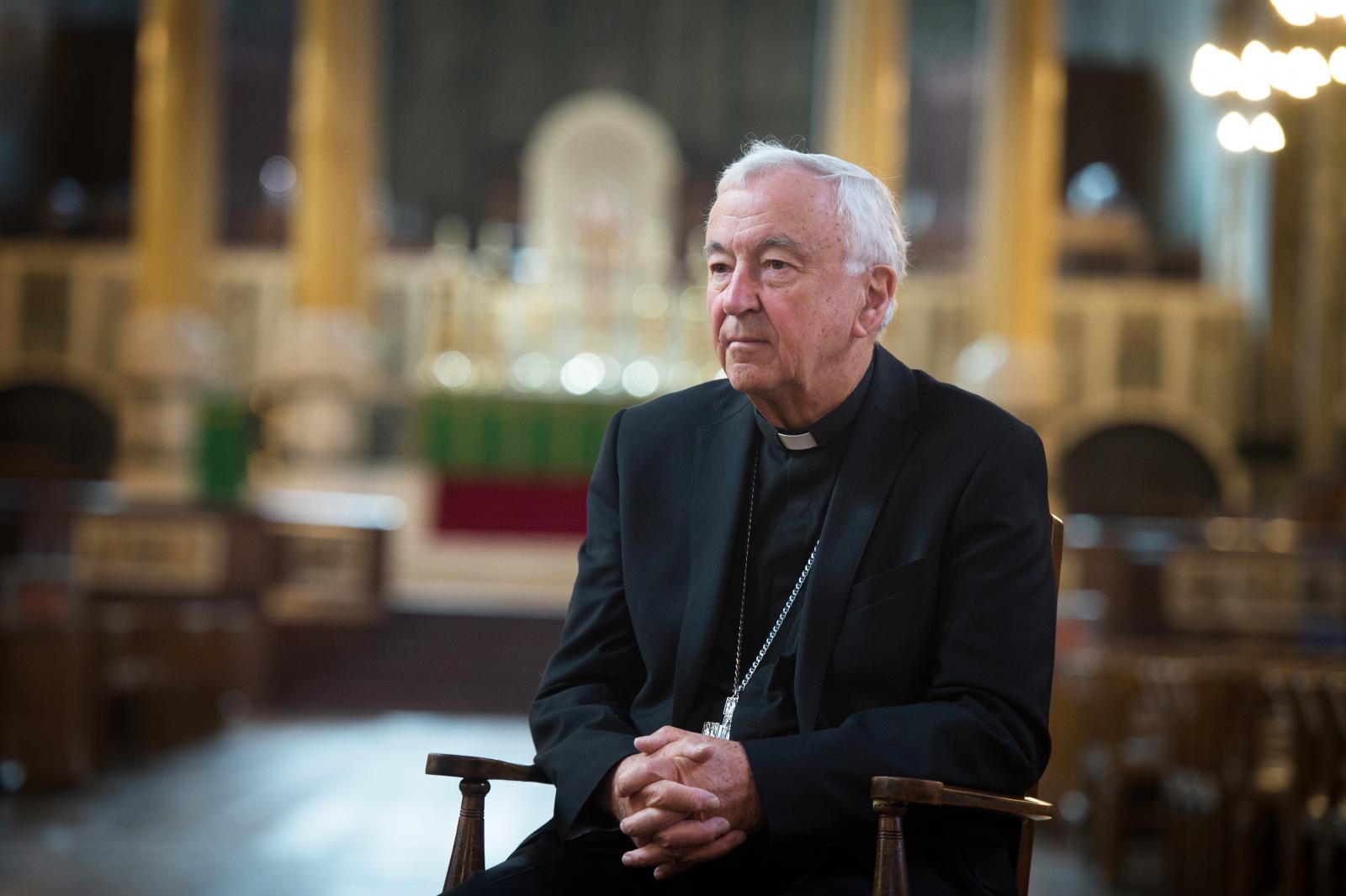In a wide-ranging interview on how Catholic teaching can contribute to politics, business, the economy and society to build better for the future, Cardinal Vincent spoke about the contribution that Catholic charities are making to alleviating suffering, noting particularly the work of Caritas Bakhita House caring sensitively for survivors of human trafficking and modern slavery. He also told of the work of parishes and schools working to feed children and families. These, he said, are examples of ‘Catholic conviction, generosity and compassion working in a modern society’.
Discussing business practices, he said that it is important for businesses to ‘have an awareness of the impact of decisions in their full dimensions’ and to be responsive to these. Catholic thinking teaches that it is human decisions, not market forces, that drive the economy. ‘If you observe that kind of attentiveness and responsiveness, then your business thrives.’
The purpose of a business is not to drive profit, but to contribute to the greater welfare of people: employees, customers, shareholders and the society in which it operates. ‘What is the business’s specific contribution and how does it purposefully engage with people?’ he asked. ‘If we’re going to see businesses honour the society that welcomes them, then we’ll have to be looking for ethical profit, not just profit.’
He encouraged everyone, businesses and consumers to become aware of supply chains and the effects of our consumption patterns on others around the world.
As restrictions are eased and businesses begin to re-open, he explained that they will have to come to terms with some of the ‘shifts that have taken place with the pandemic. He mentioned three trends in particular: the effect of remote working on businesses who rely on trade from office workers who may not be returning to the city centre; the greater awareness of the contribution of key workers whose work was previously undervalued; and the appreciation of the importance of the ‘matrix of locality’ in neighbourhoods and communities.
Asked about the Church of England’s Coming Home Report about decent, affordable housing for all, he said that ‘housing is a very complex business’. He spoke about the need to find creative ways to finance affordable housing in all areas. He stressed the importance of mixed housing so as not to segregate people and exacerbate inequalities. The challenge for the housing market, he added, is to begin to look again to the needs of families, how a family can make a house a home and how families can build communities.
He stressed the importance of generations in families by recalling the Pope’s advice to young people to talk to their grandparents: ‘We need to draw out the gifts of the generations to each other. Both in difficult aspects of life and gifts of life, what flows between generations is more and more important.’
When asked what advice he has for living a more contented life, he said: ‘Be ambitious and don’t be afraid to be competitive, but recognise that other people will have different gifts. Be creative in how you are competitive and ambitious,’ remembering to show love and compassion. ‘Dig down into that deeper well of human compassion, which is summed up in the person of Jesus.
‘Be open to what you know is the voice of God in your life. If you sense that voice, respond with care and discernment. There is a dimension to life which goes beyond our normal horizons. We have to respond to that glimpse of those big horizons that God opens up.’
The Cardinal was speaking with Vincent Masterson on the ‘Beyond the City’ podcast.
Photo: Mazur/CBCEW.org.uk
